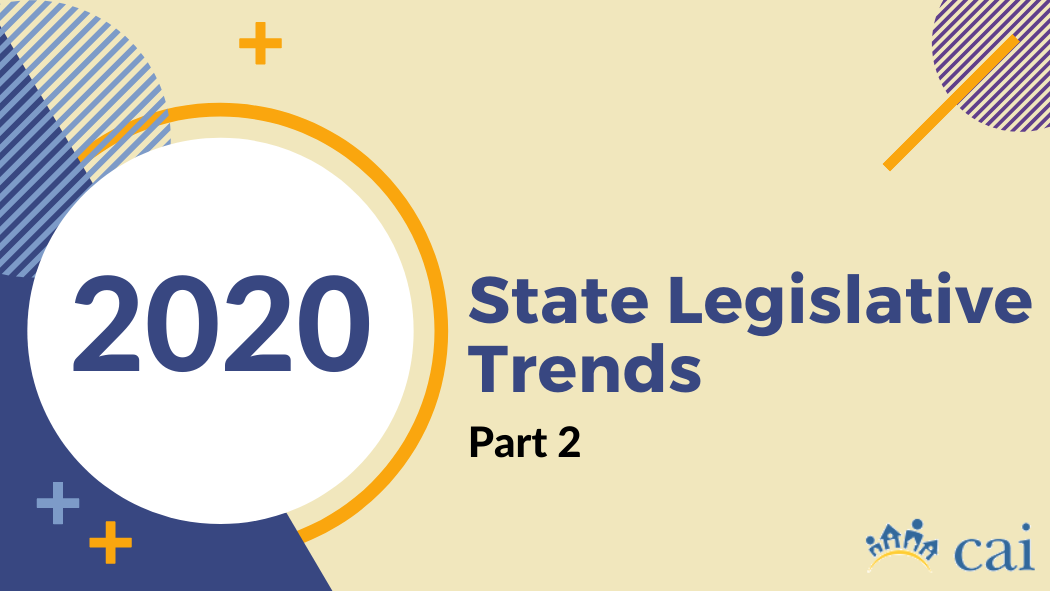As of today, 44 state legislatures have convened, and CAI is tracking more than 1,000 bills impacting community associations. This is part two of our 2020 state legislative trends. Read part one here.
In addition to affordable housing, construction warranties, reserve studies and funding, the following trends and issues are CAI advocacy priorities:
Assistance Animals: The issue of community associations responding to a reasonable accommodation request from a resident living in their community is governed under the federal Fair Housing Act (FHA) and state statutes. According to the U.S. Department of Housing and Urban Development (HUD), FHA complaints concerning denial of reasonable accommodations and disability access comprise almost 60% of all FHA complaints, and those involving requests for reasonable accommodations for assistance animals are significantly increasing. The large number of complaints is an indication of the lack of clarity on how a housing provider (e.g. a community association) must handle a reasonable accommodation request.
State legislatures are considering and passing legislation to help provide clarification and/or help stop people from misrepresenting their need for a reasonable accommodation. In addition, states have introduced legislation that prohibits discriminating against a person with a disability who has an emotional support animal. Other states are expanding the definition of an assistance animal from a service animal to include emotional support and/or therapy animals.
The following states have legislation regarding misrepresentation, documentation, or otherwise expanding the definition of an assistance animal: Iowa, Illinois, Florida, Kansas, Massachusetts, Michigan, Minnesota, Missouri, North Carolina, New York, and New Jersey. In Indiana, a bill was introduced to determine that a chicken is a pet when defining which animals are allowed in a community association.
Community Values: CAI advocates for state legislatures and regulatory agencies to acknowledge the right of self-determination by residents who elect homeowner volunteer leaders that have a vested interest in their communities. We believe communities should have the power to decide policies on issues such as vacation rentals, solar panels, electric vehicle charging stations, landscaping requirements, and more.
Corporate Rentals: Large real estate investment trust (REIT) companies are targeting community association governing documents that restrict rentals by trying to preempt covenants with legislation. These REITs purchased homes in communities in Charlotte, Phoenix, Nashville, Memphis, Dallas and other cities from Fannie Mae and Freddie Mac at a fire sale following the housing crisis of 2008.
Short-term Vacation Rentals: Vacation rentals legislation continues to trend throughout the U.S., including in Arizona, Florida, and Hawaii. These bills attempt to restrict localities from prohibiting short-term rentals. Currently, Florida specifically allows community associations to adopt and enforce covenants that restrict short-term rentals.
Next week, we will discuss more policy issues such as electrical vehicle charging stations, political signs, and solar energy, as well as refining the authority of governing boards. Stay tuned.
Follow legislation in your state by clicking here.



